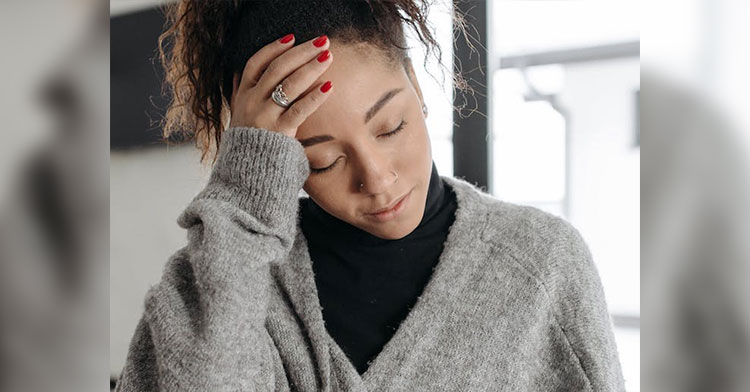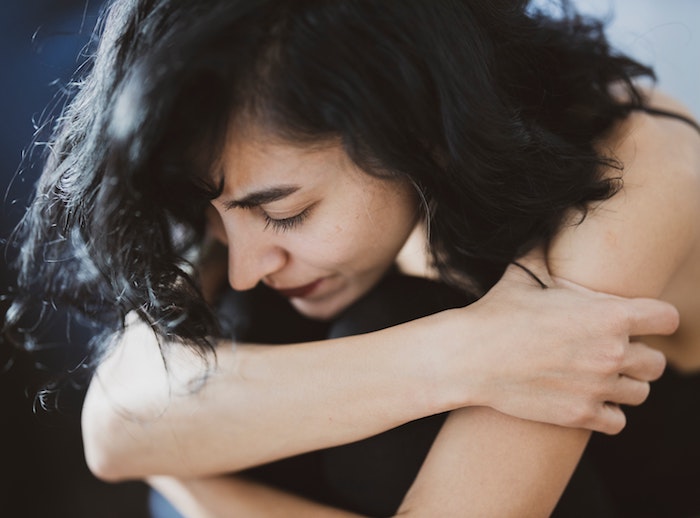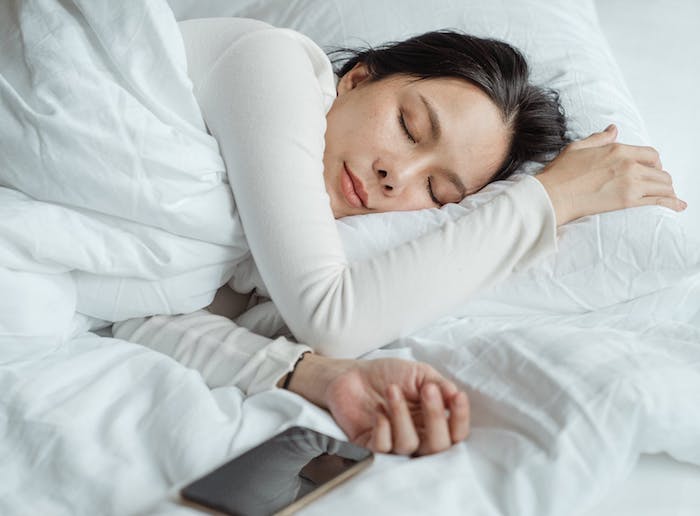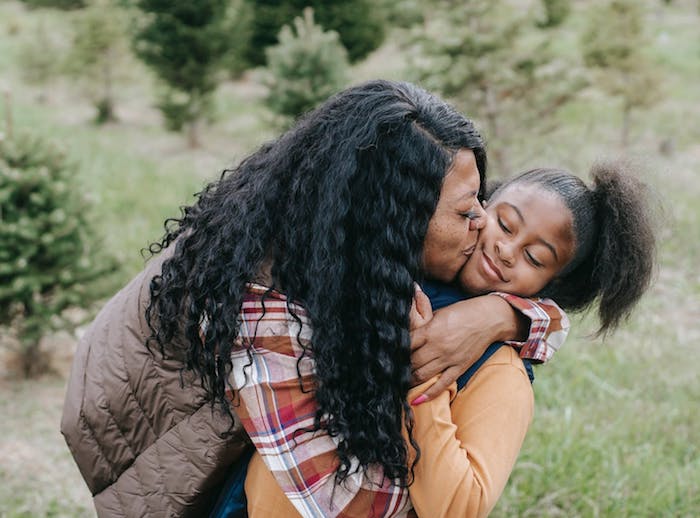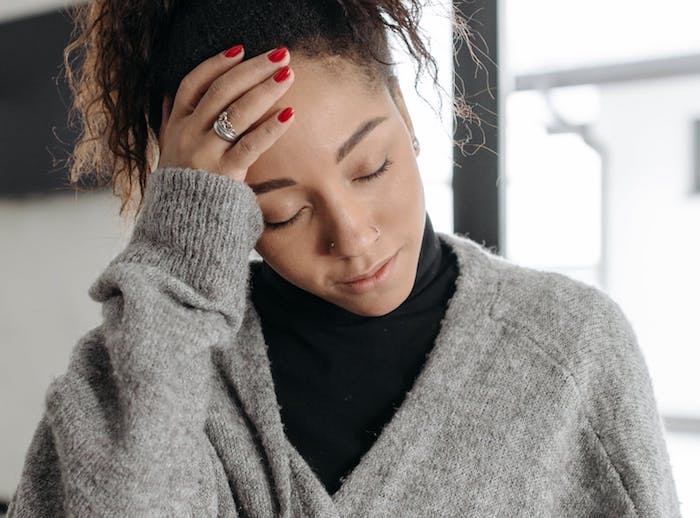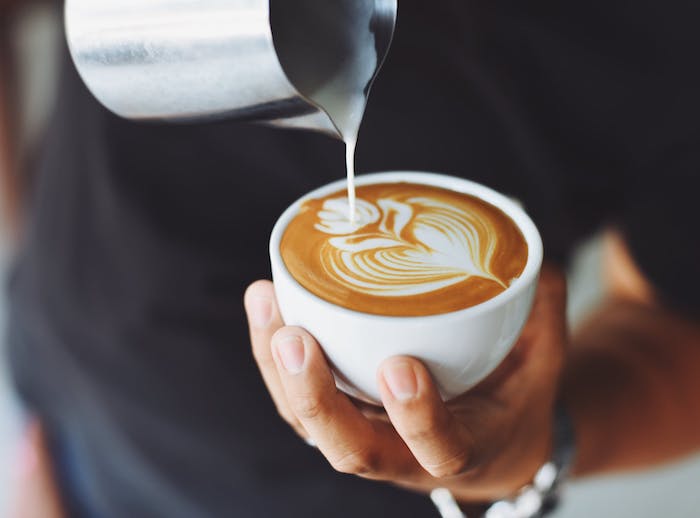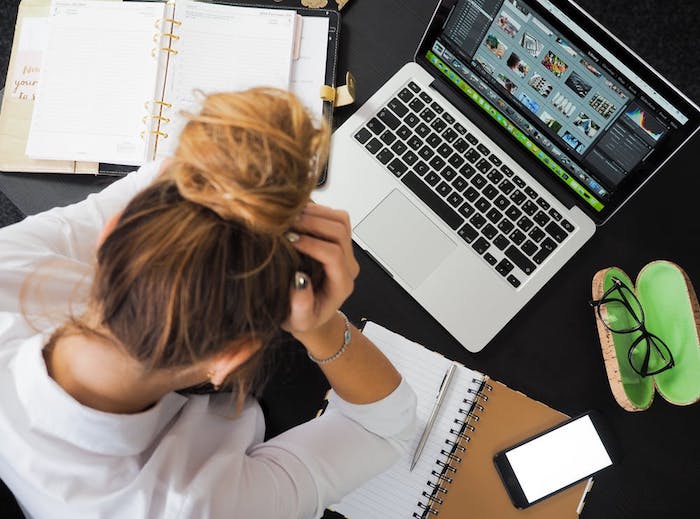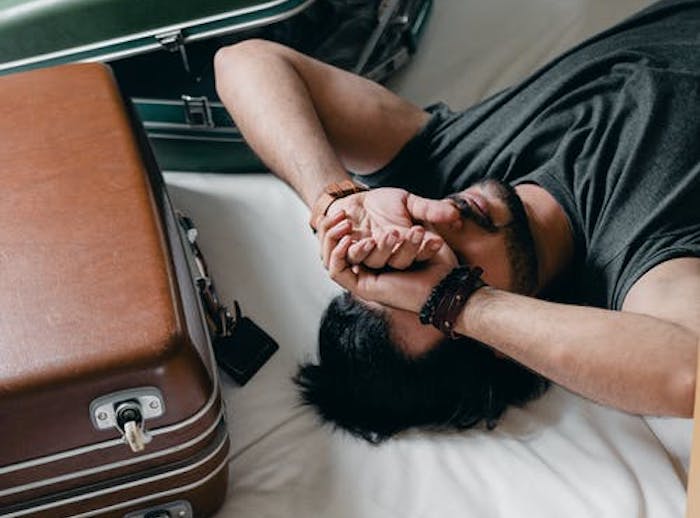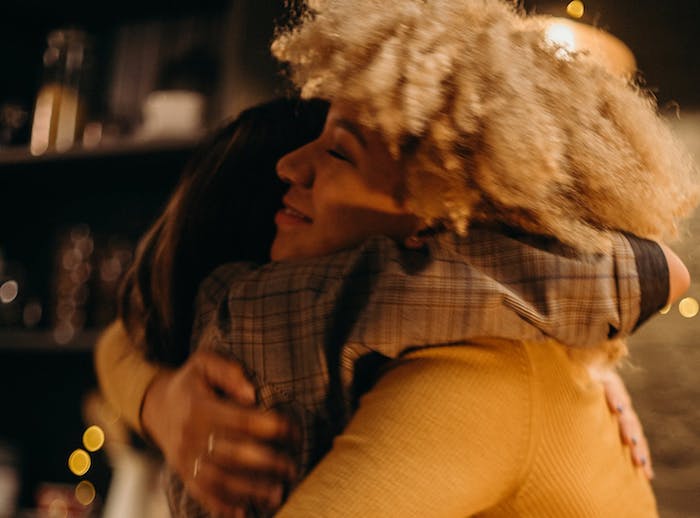Anyone who has ever suffered from anxiety knows that when it’s at its height, it can feel impossible to come back down again.
Many people experience worry regularly, but that isn’t necessarily the same thing as battling anxiety. Feeling your heartbeat quickening, your body sweating, or your chest tightening are all signs of anxiety that goes beyond stress, as is the sensation of being overwhelmed by something you can’t put your finger on.
What do we do when symptoms come on in the middle of our daily lives? Don’t lose hope – there are ways we can combat these feelings! Here are eight common triggers of anxiety and how you can cope with them.
1. Not taking care of yourself.
Right now, so much content is focused on self-care because there’s truth to it. First of all, we need sleep. The CDC says adults should be getting a minimum of seven hours of quality sleep each night. Studies have proven time and time again that there’s a link between a lack of sleep and increased anxiety.
Also, we have to be aware of our eating habits. I know, this seems like a cruel topic to bring up during a global pandemic. But in all honesty, poor dietary habits can have a negative effect on our mental health, causing us to be more susceptible to anxiety attacks.
2. Concern for the people we love.
Many people who deal with anxiety experience it in the form of worry for their loved ones. Whether it be a concern for their health, their well-being, why they haven’t picked up their phone, or what you would do if something bad did happen – all of these can be major triggers of anxiety.
3. The fear of an undiagnosed medical condition.
Is this headache a sign of cancer? Are these chills a symptom of malaria? Or maybe… it’s just our symptoms of anxiety that are giving us anxiety. The term “hypochondria” may sound a bit extreme, but many of us deal with this in some way or another. Though minor for some, other people endure intense anxiety related to health worries.
Whatever the case may be, we have to get a handle on it before it turns into an anxiety disorder.
4. Stimulants and medications.
Before you ask, yes, coffee is a stimulant, and it can worsen anxiety. Susan Bowling, a psychologist at the Women’s Health Center at Cleveland Clinic, told Health that studies have shown drinking around two cups of coffee can greatly increase the risk of an anxiety attack.
“The natural effects of caffeine stimulate a host of sensations… all things that mimic anxiety,” she said. “Psychologically, it’s difficult for your mind to recognize that this is not anxiety because it feels the same.”
The same goes for some medications, namely methylphenidate and amphetamines, which are used to treat ADHD and narcolepsy. But the same can also be said of some anti-asthma medications and antidepressants. Guidance and moderation are always key.
5. Content overwhelm.
Specifically: social media. One study showed that “greater daily time spent on social media, increased frequency of [social media use], and multiple platform use were associated with both depression and anxiety.” The same study suggested that “individuals who feel more emotionally connected to social media” might have a higher risk of depression.
No one is suggesting that you cut social media and content consumption out completely. It’s all about balance. There is a lot of content available that can actually soothe our anxiety, but we have to be self-aware to know what kinds of content (and how much of it) could trigger our anxiety.
6. Social conflict.
It is perfectly normal to want to avoid confrontation, but there comes a time when the avoidance is doing much more harm than good.
The anxiety of pushing off potentially stressful conversations, especially paired with the sadness and frustration that come with conflict, can sometimes overwhelm us. Better to face the music than to wither away worrying about the potential consequences of a hypothetical conversation.
7. Lack of control.
This is a big one. This can include anything from perfectionism to the fear of an unknown outcome. A pertinent example? COVID-19. This past year has brought with it a multitude of unknowns, from financial uncertainty to isolation to fear surrounding the disease itself.
As Dr. Una McCann, a professor of psychiatry and the director of the Anxiety Disorders Program at the Johns Hopkins School of Medicine, said, “When we have a sense of control and can see things and interact with things, it’s calming in a way. But the absolute inability to see, or reach out to, or help people who you love and care for from afar can be very anxiety provoking.”
8. Worry over worldwide disasters.
Finally, the concern that is attached to global catastrophes. This year we’ve had our fill: natural disasters, extreme weather, and the pandemic itself.
Researchers have even coined a new term for the specific anxiety related to the pandemic: “coronaphobia.” Health experts define this term as “an unforeseen reality, unending uncertainties, need of acquiring new practices and avoidance behavior,” to name a few.
But basically, it’s the ultimate lack of control. And it, of course, causes major anxiety.
So what do we do with all of these triggers? How do we control our anxiety and go on with our daily lives?
First, it’s helpful to identify your specific trigger. You can start by journaling about some of the moments each week when you experience anxiety. Try to look for patterns to identify what triggers are surrounding each experience.
Next, take care of yourself before the next anxiety attack can even happen. Stressful moments are inevitable. All we can do is control what we can control, such as showing ourselves compassion and being vulnerable with others about our struggles as a form of validation for what we are going through.
Never be afraid to seek treatment, and open up to others about what you’re going through. Chances are, they could use a shoulder to lean on, too!
Anxiety is difficult to manage, but that doesn’t mean we can’t get through it! Take a deep breath and practice identifying your triggers today.
Share this story to help someone else manage their anxiety.
Want to be happier in just 5 minutes a day? Sign up for Morning Smile and join over 455,000+ people who start each day with good news.



